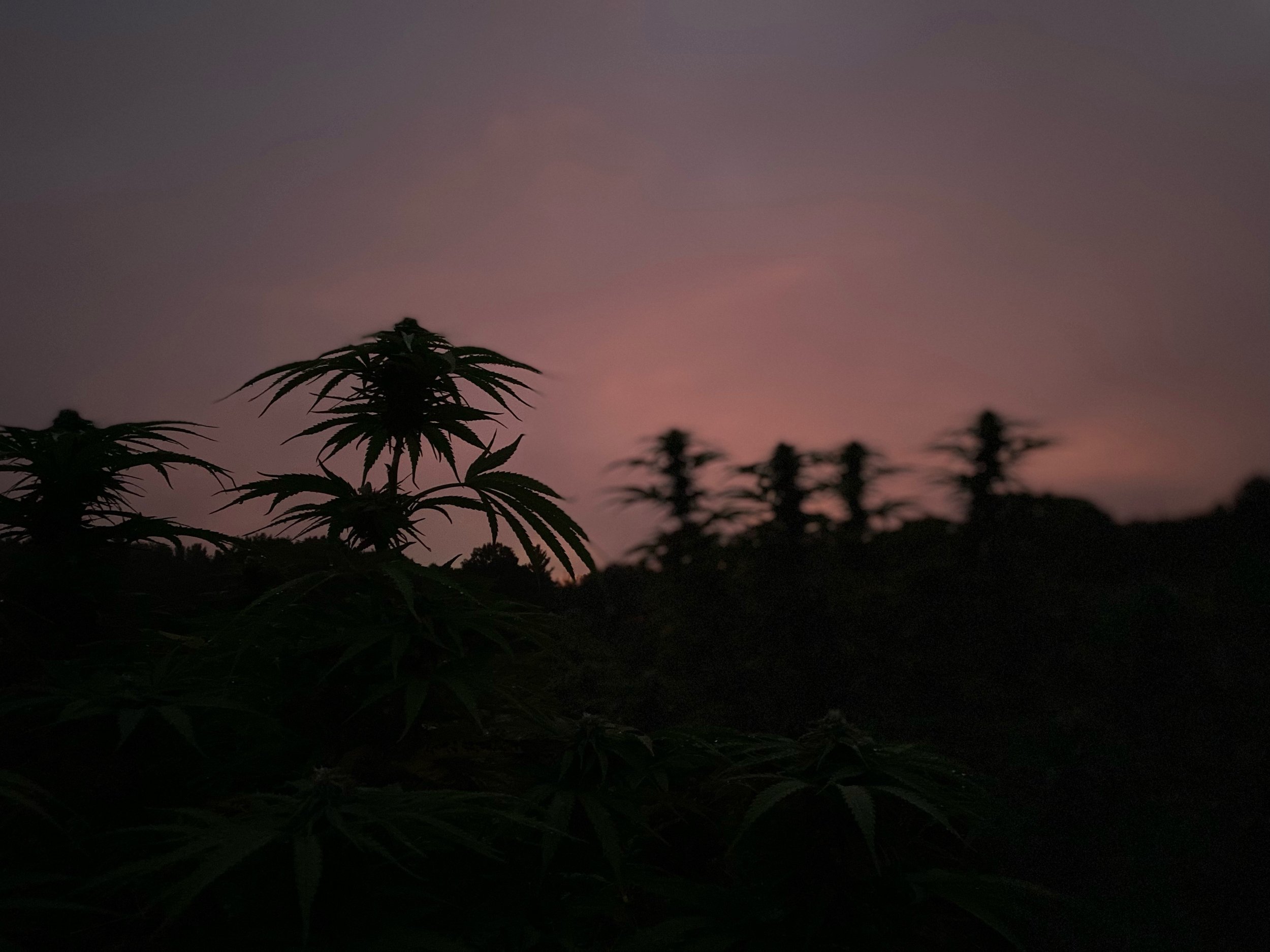EOS Farms Redefines Cannabis Wellness with Genetics for Desired Effects
Part One of a Three Part Series by Isabella DeChard for Fat Nugs Magazine
How industry leaders Riley D. Kirk, Ph.D., Ally Schott, & Steven Philpott Jr. demystify plant genetics, build a woman-centered care platform, and unravel the broad spectrum of consumer demographics
As rapidly as we’ve watched cannabis legalization unfold, the health and wellness industry has dramatically transformed its focus around the plant.
From hemp-derived CBD to help with sleep disorders, or THC-isolated products promoting higher energy, the market is full of innovative products claiming to promote natural wellness. Yet despite the long history between cannabis and humans, we’re only scratching the surface of the health and wellness benefits the plant provides – especially as the scientific world attempts to measure and define these benefits more clearly.
Composed of organic roots and a drive for sustainable agricultural practices, EOS Farms is an outdoor cannabis cultivation in the Berkshires growing cannabis tailored to more than just maximizing THC. EOS Farms aims to identify and grow cultivars that create compounds that are useful for a wide range of purposes, including reducing anxiety (or PTSD symptoms), women’s health, pain management, and many other ailments.
Cannabis cultivators are looking for good disease resistance, uniform plant structure, and potency – but the consumer effects and experience are equally as crucial.
With a regenerative and sungrown approach to cannabis cultivation, EOS Farms aims to put out a line of products curated with a sole focus on the consumer’s desired effects, rather than a fancy, high THC strain with unfamiliar nomenclature. This cultivation also mindfully selects the finest plant genetics that includes a more balanced line of Type II cultivars, with a better ratio of low-psychoactive cannabinoids that gives a more desirable, functional high for day-to-day users.
Fine Tuning Plant Genetics for Desired Results
Davis Seeds is one of the many breeders partnered with EOS Farms to produce specific genetics that do well in this unique terroir – creating varieties that can grow high yields in a challenging climate while providing specific wellness effects that users can benefit from.
The results not only provide a more flavorful and full-spectrum experience for consumers, but flower that confidently gives optimized effects.
Both the regenerative farming methods and the plant genetics used in EOS Farm’s cultivation act as a symbol of the essence of sungrown cannabis – a full-spectrum cannabis cultivar rich and robust in cannabinoids, and terpenes, grown carefully in the sun and soil.
Aside from its efforts to create a rich and biodiverse landscape for sustainable cultivation, one of the many goals for EOS Farm’s cannabis cultivation is to introduce consumers to the abundance of wellness benefits the plant can bring.
Industry leaders promoting education about the plant, platforms providing plant medicine support, and unraveling insights into consumer demographics are all proving that EOS Farms is not alone in the mission of demystifying cannabis health and wellness.
The Truth Behind Cannabis Health & Wellness
with Cannabis Cultivation Researcher Steven Phillpott Jr.
As an environmental biologist, former sports scientist, cannabis cultivation researcher, and combat veteran, Steven Phillpott Jr. is on a mission to push the boundaries of cannabis health and wellness for a more well-rounded approach to the plant and all its power.
When his service as an active-duty Marine left him with a broken leg, Steven was led to a lifestyle of multiple corrective surgeries and pharmaceuticals, including opioids. Negative side effects from these factors left him concerned about his physical and mental well-being, especially considering the fellow Marines he knew who had overdosed from these same opioid prescriptions. When a close friend challenged Phillpott to educate himself on the science of the cannabis plant, rather than concede to its swirling negative stigma, his perception, lifestyle, and health were forever transformed.
He spent the next decade learning about the benefits and science of cannabis, engrossed in the educational research and resources around him, all of which further shaped his relationship and personal experience with the plant.
However, it was his first work experience as an inventory dispensary manager for a private MSO company that opened his eyes to how the industry is focusing on cannabis as a consumer-packaged good, rather than a living plant with medicinal properties.
“Rather than focusing on one or two ingredients on a label, I challenge the health and wellness industry to explore cannabis as a botanical plant and superfood with robust antioxidant and neuroprotective properties.”
“The biggest issue I see is that there is a massive bottleneck of opportunities focusing solely on THC and CBD,” Phillpott says about the perspective shift that is needed from the plant health and wellness industry. “Rather than focusing on one or two ingredients on a label, I challenged the health and wellness industry to explore cannabis as a botanical plant and superfood with robust antioxidant and neuroprotective properties… at least that's what the US Department of Health and Human Services U.S. patent US6630507B1 says.”
There’s More Than Just THC in Healthcare
Steven’s approach is simple: to explore and treat cannabis for what it is, a natural plant and living organism.
In his work with The Cannigma, Phillpott strives to provide deeper insight into the understanding of plant medicine and wellness – urging new and experienced consumers to consider how a plant or animal's biological implications produce cannabinoids in response to stress.
Just like how cannabis plants produce cannabinoids (phytocannabinoids) in response to environmental stressors like UV radiation, many other living organisms – cats, dogs, fruit flies, bears, and humans alike – produce endocannabinoids to help regulate internal stability through homeostasis. “It’s a naturally occurring system that was only discovered in the 1990s, but has the potential to change life as we know it…if we could just stop solely focusing on the element of THC.”
Today, as an environmental biologist and cannabis cultivation researcher, Phillpott believes cultivation methods and practices are everything when it comes to the end-consumer experience. “Like humans, twins from the same parent plants can have vastly different expressions of cannabinoids and terpenes, depending on their environment. Rather than focusing only on inhalable products with arbitrary naming, or sky-rocketing THC percentages, we should focus more on the desired experiences and rely on data to help us narrow it down.”
For instance, if a Veteran with PTSD is seeking cannabis to help reduce the likeliness of an episode, the right data and insight into cannabinoids and terpenes will help this individual consume something that should increase those chances.
This advocacy for research and education is what will help push the needle in shifting cannabis health and wellness to a more optimized and influential experience for all patients seeking relief.






